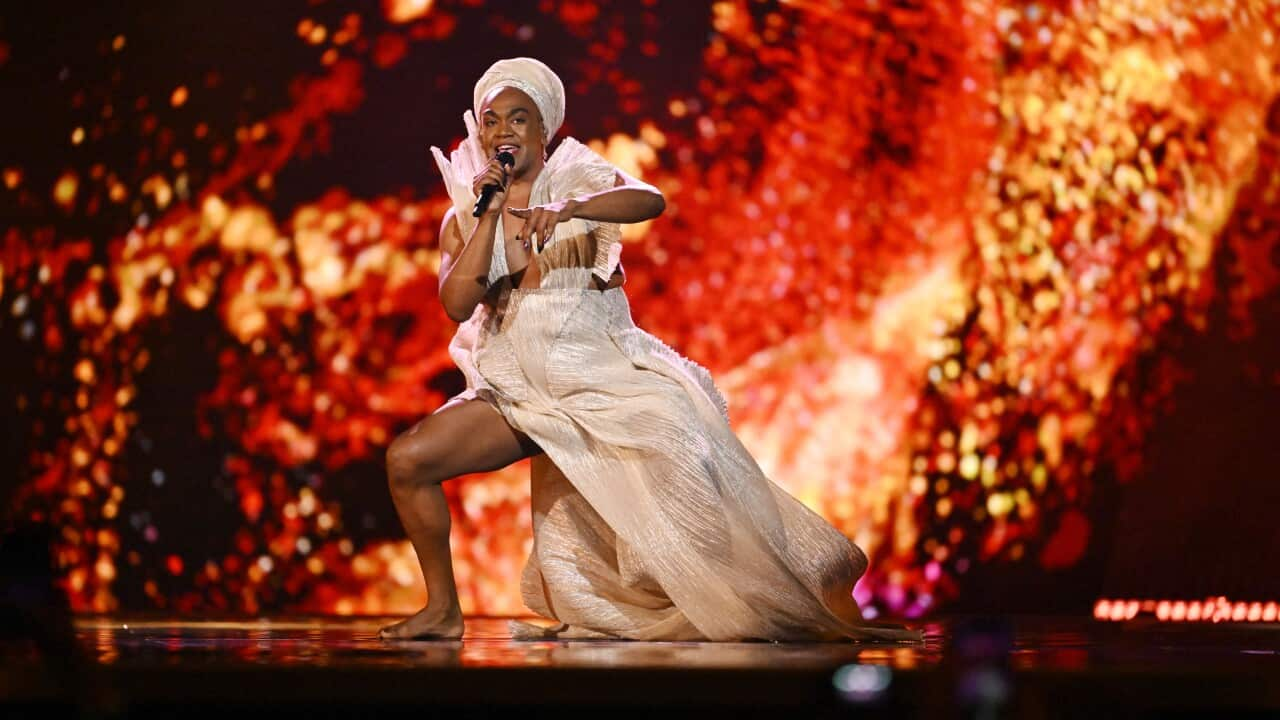Key Points
- The 68th Eurovision Song Contest is taking place in Malmo, Sweden.
- The duo Electric Fields is representing Australia with the song One Milkali (One Blood).
- Australia has been participating since 2015, but why is the non-European country allowed to compete?
They are the ninth contestants to represent Australia in the competition, which millions of people worldwide watch each year.
But why is Australia — a country at least 14,000km from Europe — involved in the contest, and how did it all start?
Why is Australia in the Eurovision Song Contest?
Throughout its history, it has almost entirely involved countries from the European Broadcasting Union (hence the name).
In 2018, the semi-finals and grand final were watched by around three million Australians.
History made
In 2014, Darwin-born singer Jessica Mauboy made a guest appearance at the Eurovision extravaganza in Copenhagen, Denmark.
Mauboy got the audience singing and dancing with her track Sea of Flags, which touched on Australian stereotypes while living up to the quintessential Eurovision kitsch.
Australia’s wildcard entry into Eurovision
Australia was given a wildcard entry straight to the grand final.

Guy Sebastian represented Australia at Eurovision in 2015. Source: Kerstin Joensson/AP
SBS announced singer Guy Sebastian would represent Australia at the 60th anniversary of the contest in Vienna, Austria.
His performance of Tonight Again marked an important celebration of Australian music, diversity and culture, and scored 196 points, taking Australia to fifth place.
What is Australia’s best result at Eurovision?
In 2016, South Korean-born Australian singer-songwriter Dami Im was announced as Australia’s competitor in Stockholm, Sweden.
Im came second, wowing the crowd in Sweden with her song Sound of Silence.
Which Australians have competed in Eurovision?
He came ninth with his song Don’t Come Easy.
In 2019, Kate Miller-Heidke won the inaugural Australian final of Eurovision — Australia Decides which was held on the Gold Coast. The competition was introduced to determine the country’s Eurovision representative.

Kate Miller-Heidke won the inaugural Australian final of ‘Eurovision – Australia Decides Source: AAP
She said her song Zero Gravity was inspired by coming out of depression after the birth of her son, Ernie, in 2016.
She finished in ninth place with 284 points.

Australia’s best result at Eurovision was in 2016, when Dami Im finished second. Source: SBS
What happened to Eurovision during COVID-19?
In March 2020, the Eurovision Song Contest — which was scheduled to be held in Rotterdam in the Netherlands — was cancelled for the first time due to the coronavirus pandemic.
They did not qualify for the final.
In 2023, Australia’s entry Voyager placed ninth with their hit Promise.
What happens if Australia wins Eurovision?
If Electric Fields wins, the duo will be asked to perform their song One Milkali one more time before taking home the iconic Eurovision glass microphone trophy.

Ukraine’s Kalush Orchestra with the Eurovision trophy after they won the 2022 contest, held in Italy. Source: Marco Bertorello/AFP
The winning country traditionally becomes the host of the next Eurovision Song Contest, as has been done every year since 1981, with the exception of Ukraine.
The Eurovision Song Contest is held from May 8-12 (AEST) and will air on SBS and SBS On Demand.
